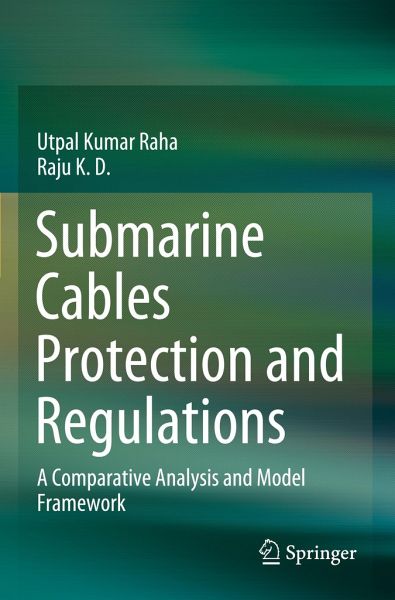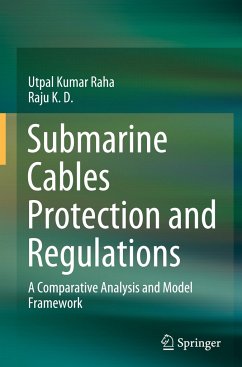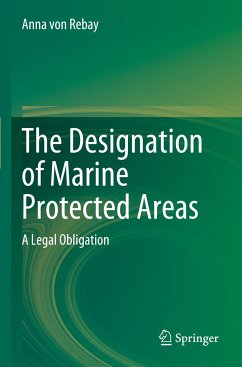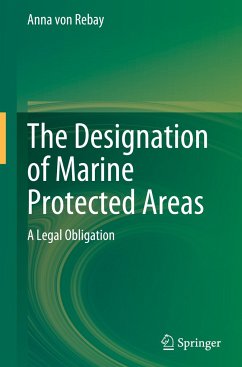
Submarine Cables Protection and Regulations
A Comparative Analysis and Model Framework
Versandkostenfrei!
Versandfertig in 6-10 Tagen
106,99 €
inkl. MwSt.
Weitere Ausgaben:

PAYBACK Punkte
53 °P sammeln!
This book highlights the critical importance of laying, quick relinking, and protecting submarine cables with timely approval for carriers and cable repairing ships and how these are most challenging in many jurisdictions. It identifies that a dedicated national instrument on submarine cable as a way forward is yet to be appreciated by many States, and presently, there is no model legal framework for national instruments on submarine cables available. To bridge these gaps, the book undertakes a systematic inquiry and analysis of submarine cable regimes' and relevant authorities. It consults ex...
This book highlights the critical importance of laying, quick relinking, and protecting submarine cables with timely approval for carriers and cable repairing ships and how these are most challenging in many jurisdictions. It identifies that a dedicated national instrument on submarine cable as a way forward is yet to be appreciated by many States, and presently, there is no model legal framework for national instruments on submarine cables available. To bridge these gaps, the book undertakes a systematic inquiry and analysis of submarine cable regimes' and relevant authorities. It consults existing knowledge on international law on cables and analyzes specific principles and provisions on laying repair and maintenance of submarine cables and states' obligations towards protecting cables from vulnerabilities. It touches upon cable regulation in the deep sea concerning the International Seabed Authority and proposed biodiversity agreement. It indicates suitable measures on cable laying, etc., and security risks in the marine space beyond the national jurisdictions. To map States' response, it explores the domestic cable regimes, including both the selected jurisdictions and Australia and New Zealand, analyses specific legal provisions and institutional set-up, and demonstrates state practices, approaches, and loopholes in the governance of the cable system within national jurisdictions.
The book suggests adopting the spatial ocean management approach, dedicated regulatory authority, a competent enforcement agency, strict liability with exemplary punishment on cable damage, and the cable system to strengthen the cable system's management. Finally, it arranges the fundamental premises of a common minimum framework for national instruments seeking coastal states' deliberations in implementing initiatives towards a robust law and policy for reliability, resiliency, and security of the cable system. The cable industries, pipeline, fishing,shipping industries, academicians, government authorities, international bodies, and the maritime community worldwide are looking at the issues and challenges of submarine cable regimes, particularly national regimes and suggestive remedial measures. These stakeholders will find the book a useful reference.
The book suggests adopting the spatial ocean management approach, dedicated regulatory authority, a competent enforcement agency, strict liability with exemplary punishment on cable damage, and the cable system to strengthen the cable system's management. Finally, it arranges the fundamental premises of a common minimum framework for national instruments seeking coastal states' deliberations in implementing initiatives towards a robust law and policy for reliability, resiliency, and security of the cable system. The cable industries, pipeline, fishing,shipping industries, academicians, government authorities, international bodies, and the maritime community worldwide are looking at the issues and challenges of submarine cable regimes, particularly national regimes and suggestive remedial measures. These stakeholders will find the book a useful reference.














